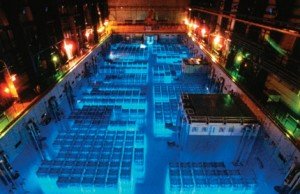 The Science Media Centre of Japan continues to issue English language updates from Japanese scientists and experts as the situation permits.
The Science Media Centre of Japan continues to issue English language updates from Japanese scientists and experts as the situation permits.
While the crisis continues, they are posting all materials to their public website for ease of access. They’ve posted the following comments over the weekend
Mr Ritsuo Yoshioka is the President and CEO of the Japan Functional Safety Laboratory. He is currently involved in training and educating about functional safety standards in Japan. His comments are below.
Why the situation will not reach recriticality at Fukushima Daiichi
“Let me talk about a recriticality (when nuclear fission reactions keep occurring like when the power plant is operating) in terms of the nuclear reactor and the spent fuel pool.
“For a light-water nuclear reactor to achieve criticality, three things need to happen:
1. The 1cm diameter fuel rods need to be lined up with about 1.5cm of space in between them.
2. All the fuel needs to be immersed in water.
3. The control rods need to be removed.
Unless all these conditions are met, criticality would not be achieved.
“Therefore, the following is true:
As long as the control rods are suppressing the fuel rods, a critical situation will not occur
Spent nuclear fuel cannot reach criticality without water.
“In regards to the spent fuel in the pool, the pool in Unit 4 is empty so criticality will not occur. It was reported that someone had seen water inside the pool, but Tokyo Electric Power later clarified that it was the other pool that did not have any fuel in it.
The pool in Unit 3 does have water (the steam coming out is from the water) but it will not go critical, because the fuel batches are not aligned in a way to reach criticality.
It is because of these reasons that I believe a recriticality accident at Fukushima Daiichi nuclear power plant will not happen.”
About the spread of radioactive material
“As long as the containment vessels in Unit 1, 2, and 3 have not been damaged, radioactive material will not be released outside. “Spent fuel has been exposed to air and has been releasing small amounts of radioactive material. The lighter radioactive material has already been released in the form of a hydrogen gas explosion and has already spread out. As long as there are no more explosions, it is unlikely that any more will be released. I don’t think radiation levels will go much higher than what they are now.
“Heavier radioactive material (such as uranium, plutonium, or cobalt, which have significant effects of humans) has been released in minute amounts, but they are so heavy that they are building up at the bottom of the pool. As long as the situation does not reach recriticality, they will not spread out in large amounts.
“A recriticality accident is unthinkable, and there is no need to worry about more radioactive material spreading than it is right now.”
Information current as of 20 March 05:14 NZT – Disclaimers from the SMCJ